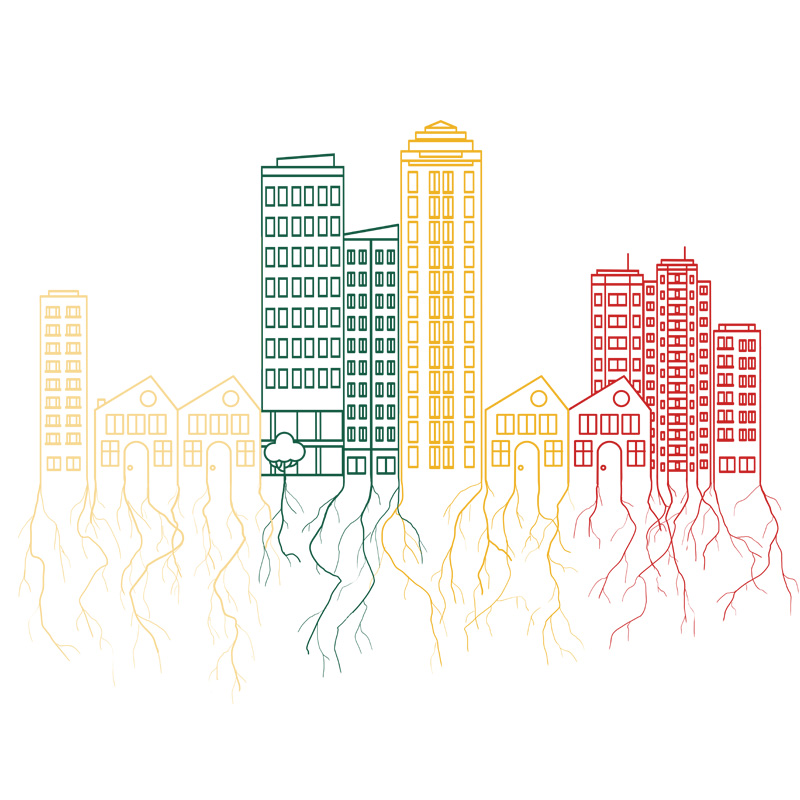We spent hours at the store. Allison examined each animal one by one. She studied their movements, their noises and their smells. She looked at their feathers, spots, fur patterns, and colors. She ... [+]
The man playing the guitar didn’t want to be famous. He preferred the street corner, ‘cause the crowds paid him no attention, and the liquor store was on the same block. Sometimes he’d leave his case open, and sometimes strangers put in a dollar or two, but he didn’t want their money. They only did it to feel better about themselves anyway.
Since the beginning of time, he had occupied the space allocated to him. This happened to be the intersection of Sheridan and Diversey, and until the end of time, he would claim it as his own. No one could pinpoint the day he appeared, and even fewer people remembered his face. He could have been forty years old, but his graying beard betrayed a weathered soul.
If he had lived a life before this one, it was no longer relevant. There was only the here and now. The man who played the guitar didn’t need an origin story to know where he came from, and anyway, he didn’t feel the need to prove his existence. Others seemed to think that if they told you enough details about their lives—if they shared the names of their children, or the books they were reading, or what they ate for dinner—it was evidence of their real-ness. “Look,” they seemed to say. “I go here, do this, never mind what it is, that’s not the point.” And then they expected you to do the same, as if the shape of you still hadn’t convinced them of your vitality.
The funniest thing was that they thought he was unhappy. Every so often, he’d lean against the storefront and watch the people passing by. Almost no one made eye contact, which he appreciated. The ones who glanced his way hid pity behind their eyes, and he saw through it every time.
It was a mystery to him why the men in suits believed themselves to be better off. He knew they walked to the same jobs every day, stopped by the same coffee shops, took the same trains back home. And all the time, they tricked themselves into thinking they were going somewhere. The constant motion could signify nothing else but progress, or at least a steady march toward...what, exactly? Death? The guitarist had accepted a long time ago that everyone was headed there eventually. So he abstained from the concrete treadmill and stayed firmly in place.
One day, as he approached the liquor store, he saw a woman hanging a cardboard sign in the window. Someone had spelled out “Store Closing” in thick black marker. The guitarist went inside and asked the clerk if he could still buy a bottle. The clerk sighed. “You gotta get outta here.”
A tired laugh filled the man’s lungs. “Are you too good for my money now?”
“No, I mean you gotta get outta this city. Even we’re leavin’. And it’s not ‘cause business is slow, no, people ain’t stoppin’ their drinkin’. But there’s nothin’ left, no chance. My wife’s got family in Milwaukee, so we’re moving in with them before this goddam state kicks us out and calls it their idea.”
The guitarist smiled. “Sounds nice. You got a paper bag?”
This was their ritual. The clerk reached under the counter and came up with a brown bag as the man slid some money toward the register.
“For real, man,” The clerk counted the change. “What’s keepin' you here? It’s a ghost city.”
The guitarist swung his strap over his back and replied, “Years back, this was my Milwaukee. But I know how it goes. I’m too old to be runnin’ from ghosts. That’s for young kids like you.” Then he walked out the door and settled back into his adopted kingdom.
His was an exercise in being, in standing still. Each note he picked out was an attempt to recede into the background. Each song was a plea to be subsumed by the environment. This was the only legacy worth leaving at the corner of Sheridan and Diversey.



